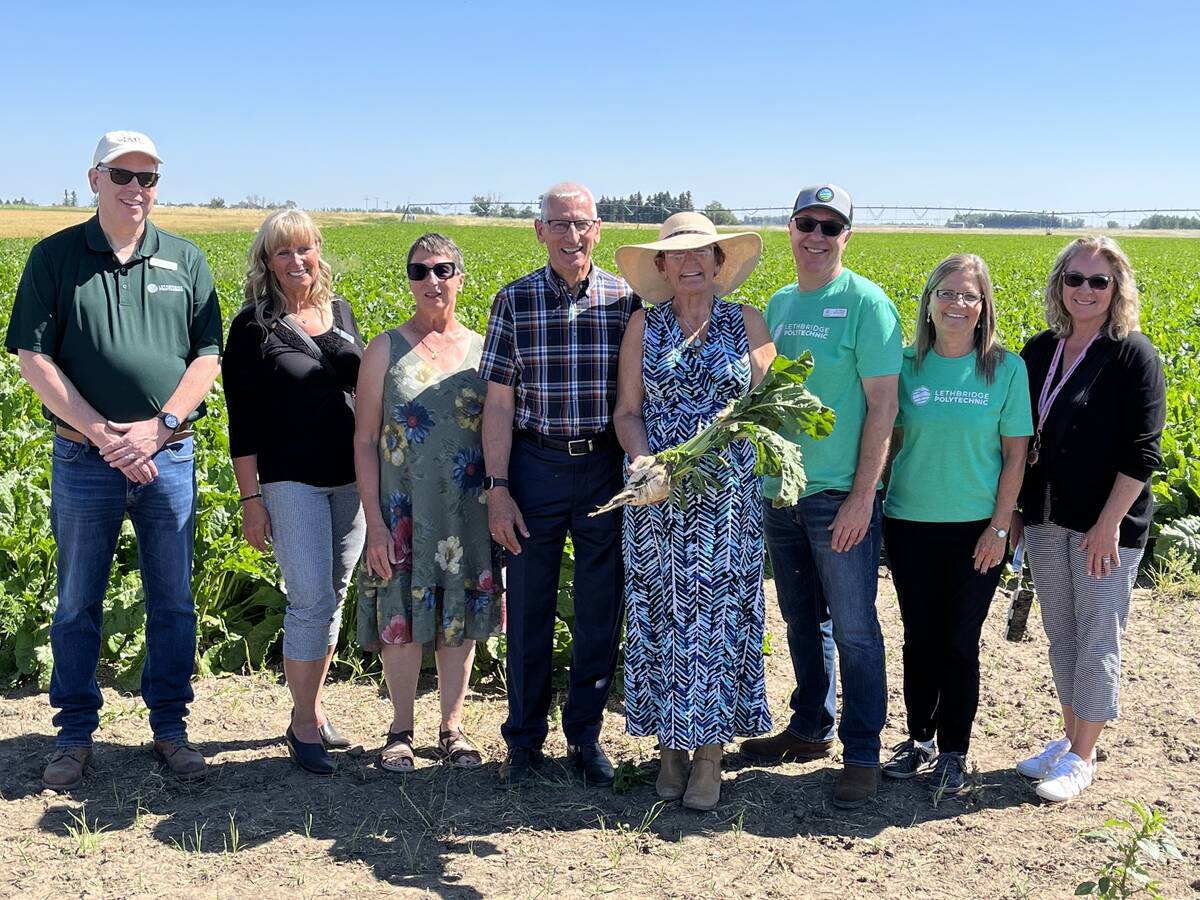Maple Leaf Foods president says pigs, poultry are most climate-friendly livestock in terms of greenhouse gas emissions
BANFF, Alta. — It’s no surprise that Michael McCain supports intensive hog production.
The president and chief executive officer of Maple Leaf Foods heads a company that produces and processes hogs and contracts other producers to supply pork as well.
Besides the supply advantage, McCain told those at the Banff Pork Seminar that large scale production will help Canada meet its climate change commitments recently agreed to at the United Nations climate change conference in Paris.
“A kilo of lamb produced on a British hillside farm can generate the equivalent of 749 kilos of greenhouse gas emissions, more than a passenger flight from London to New York,” said McCain.
Read Also

Lethbridge Polytechnic receives major donation
Multimillion-dollar donation by Hranac family aids Lethbridge Polytechnic’s research in integrated food production systems, irrigation science and post-harvest technology in Alberta
“That’s because this form of animal husbandry is so incredibly resource intensive. Scale agriculture, which efficiently converts feed into animal protein, is the path to feeding more people while reducing our environmental impact but we still have to do it better and we still have to do it smarter.”
McCain didn’t give a source for his British example, and his statement that meat and dairy production accounts for up to 18 percent of global greenhouse gas production was questioned by Alberta hog producer and former Canadian Pork Council chair Jurgen Preugschas.
He said recent studies indicate the greenhouse gas contribution of livestock is closer to 14 percent.
“Fourteen percent is just as material as 18 and it’s just as much a cause for concern and action and attention to this issue by our industry at 14 as it is 18,” responded McCain, adding the pork industry must show leadership on climate change.
“I see the misinformation every day that the enemy … of sustain-ability is big food, big farming, scale agriculture and the path to the promised land is the local farm, when in reality we know that factually, it’s the reverse.”
In his speech, McCain said pigs and poultry are the most climate-friendly livestock in terms of greenhouse gas emissions and they provide three times as much meat as cattle.
He said Maple Leaf has committed to reducing its environmental footprint by 50 percent by 2025 in the areas of emissions, water use and waste.
The food company chief also outlined plans on the animal welfare file.
“In our pork operation this includes transitioning all sows under our management to loose housing, converting a minimum of 37,000 sows by 2017 and accelerating conversion of remaining sows under our management.”
McCain said hog industry conversion to open sow housing has been slow, so quicker, broader changes are needed to meet consumer expectations.
The Retail Council of Canada has set a 2022 deadline by which its members will source pork only from operations with open sow housing.
However, the commitment is voluntary.
McCain said Maple Leaf would meet the commitment, which he said would give it a competitive advantage in pork sales both domestically and internationally.
He warned pork producers to become more transparent in their operations and be aware of threats from misinformation about their practices and products.
“The vilification of wheat could happen to fresh and prepared meat,” McCain said, in reference to consumers’ rush toward reduced gluten or gluten-free diets.
He was also critical of the recent International Agency for Research on Cancer (IARC) that said red and processed meat is a potential carcinogen.
“Aside from the complexity of trying to isolate the impact of one single food group and establish its causal relationship to a disease that often takes decades to manifest itself, the classification system of IARC places prepared meats in the same risk category as smoking or exposure to arsenic.”
He said eating two hotdogs a day for a lifetime increases the chance of getting colorectal cancer by one percent.
However, the IARC study and other analyses of meta-data, as opposed to original research, cumulatively and often negatively affect consumer perceptions about meat.
He encouraged producers to defend meat as a nutritious food and engage consumers to ensure information accuracy.
barb.glen@producer.com

















